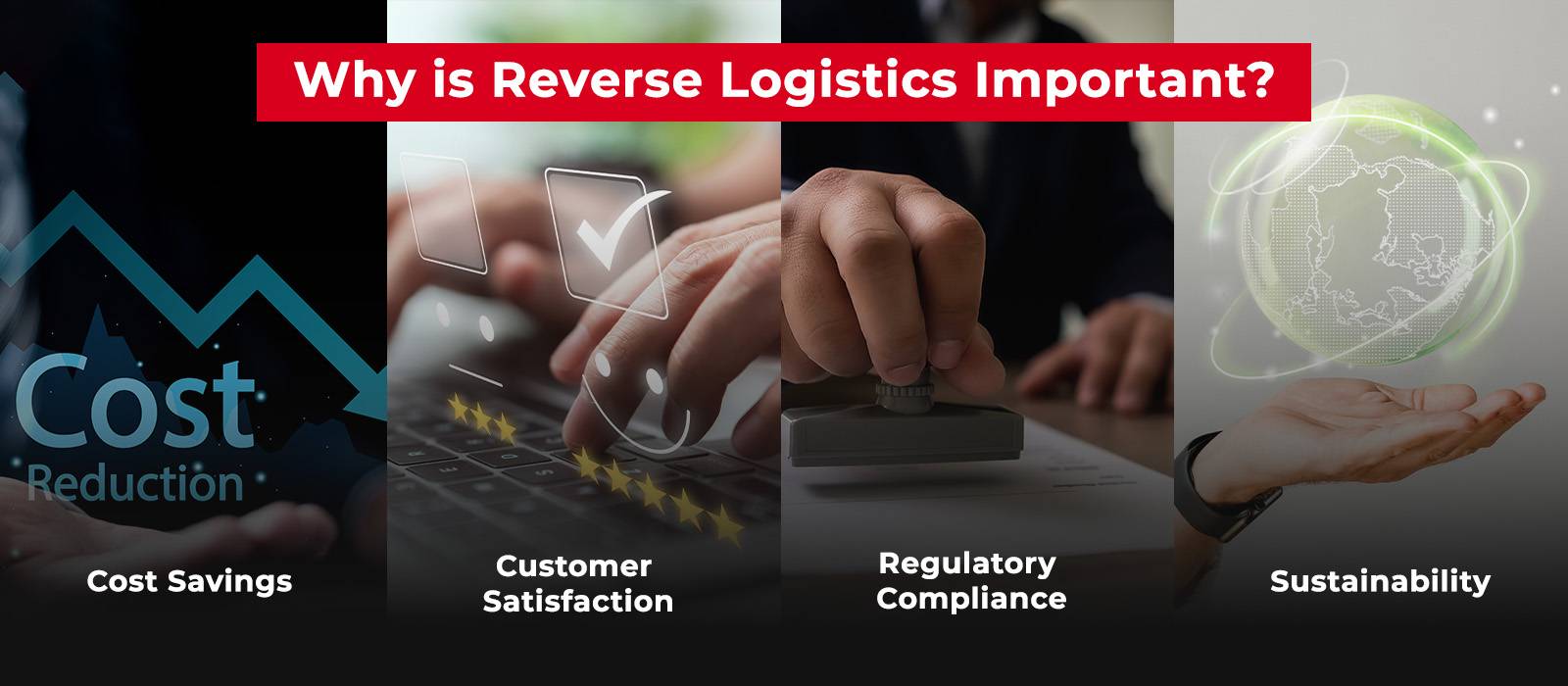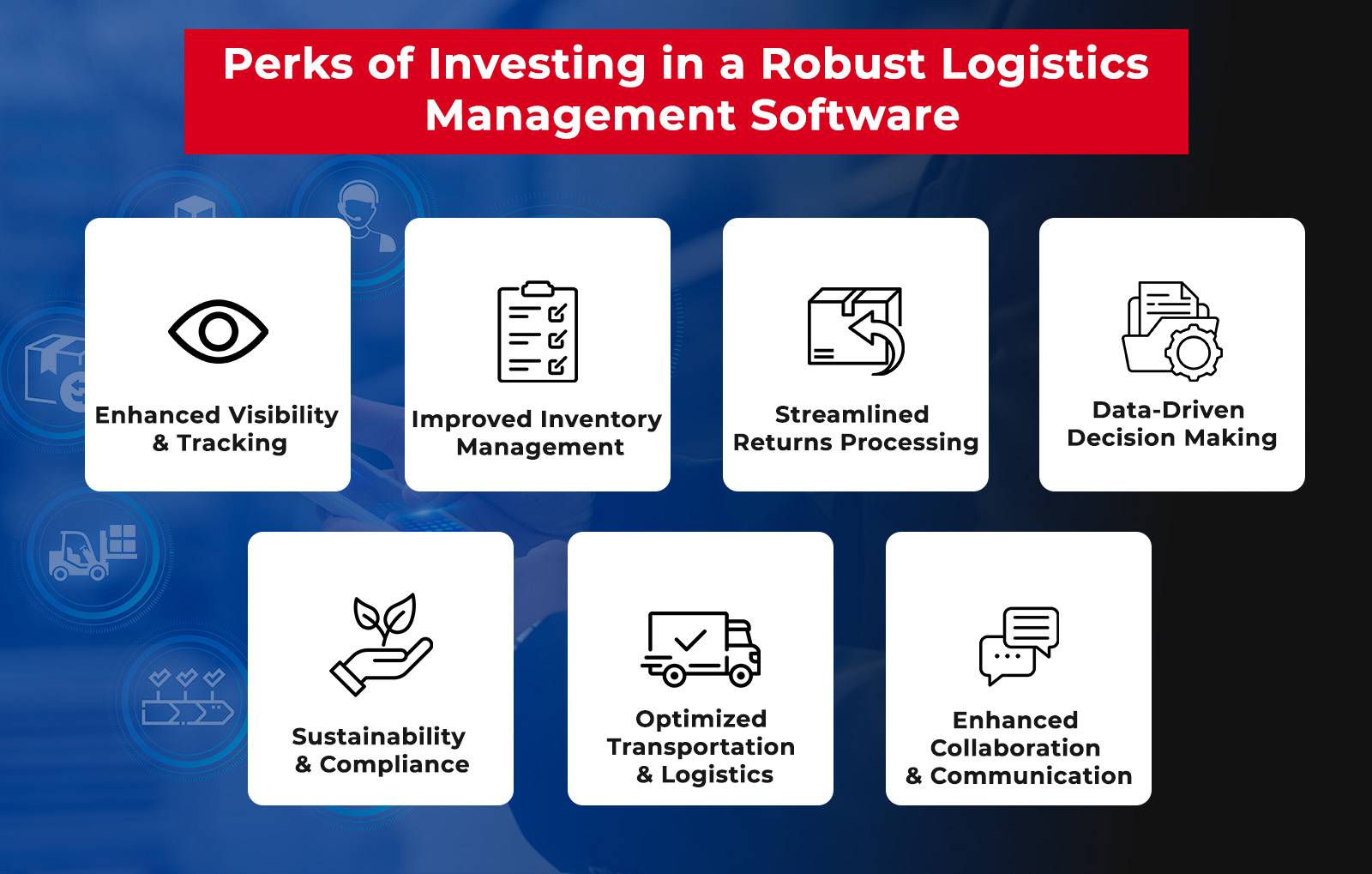
Transforming Reverse Logistics for Better Cost, Customer Experience, and Retention Using Logistics Management Solutions
In the evolving landscape of supply chain management, reverse logistics has emerged as a critical component. As businesses strive to enhance efficiency and sustainability, the role of logistics management solutions in transforming reverse logistics cannot be overstated. This software not only streamlines operations but also significantly reduces costs.
Read More: Top 7 Best Logistics Management Software Solutions
Understanding the Meaning of Reverse Logistics:
Reverse logistics refers to the process of moving goods from their final destination back to the manufacturer or a designated disposal facility for return, repair, remanufacturing, recycling, or disposal. It is the opposite of traditional logistics, which involves the flow of goods from the manufacturer to the customer.
Deep Dive: What Is Reverse Logistics? How To Optimize Reverse Logistics To Improve Your Revenue?
Key Components of Reverse Logistics in Logistics Management Solutions include:
Returns Management: Handling customer returns efficiently, including inspection, sorting, and processing.
Remanufacturing and Refurbishing: Restoring used products to a like-new condition.
Recycling: Breaking down products to reclaim materials for reuse.
Repairs and Maintenance: Fixing defective products to resell or return to customers.
Disposal: Safe and environmentally responsible disposal of products that cannot be reused or recycled.
Reverse Logistics is Crucial for Several Reasons:

Cost Savings: Efficiently managing returns and repairs can save costs associated with production and raw materials.
Customer Satisfaction: Providing a smooth return and repair process enhances customer loyalty.
Sustainability: Recycling and refurbishing reduce waste and promote environmental responsibility.
Regulatory Compliance: Adhering to regulations regarding waste management and product disposal.
Overall, reverse logistics plays a vital role in modern supply chain management by enhancing sustainability, reducing costs, and improving customer service.
Discover: Transforming Reverse Logistics: A Necessity For Future Retail Success!
Here’s why Implementing Robust Logistics Management Solutions is Vital for Optimizing Reverse Logistics

1. Enhanced Visibility and Tracking
One of the primary challenges in reverse logistics is maintaining visibility over returned products. Logistics management solutions provide real-time tracking and comprehensive visibility across the entire return process. This ensures that companies can monitor the status of returned items, from the point of customer return to their final disposition, whether it be recycling, refurbishing, or disposal. Enhanced tracking helps in identifying bottlenecks, reducing delays, and minimizing the costs associated with lost or mismanaged returns.
2. Improved Inventory Management
Efficient inventory management is crucial for cost control in reverse logistics. Logistics management solutions integrate inventory data from various points in the supply chain, allowing businesses to maintain accurate stock levels. This integration prevents overstocking and stockouts, reducing holding costs and ensuring that returned items are processed and reintegrated into inventory swiftly. By optimizing inventory management, businesses can better utilize their resources and reduce unnecessary expenditures.
3. Streamlined Returns Processing
Handling returns manually can be time-consuming and error-prone. Logistics management solutions automate the returns process, from initiating return requests to processing refunds or replacements. Automation reduces the labor costs associated with manual processing and minimizes errors, ensuring a smoother and faster returns experience for customers. This efficiency not only cuts down operational costs but also enhances customer satisfaction, potentially leading to increased loyalty and repeat business.
4. Data-Driven Decision Making
Logistics management software provides valuable data analytics and reporting capabilities. By analyzing return patterns, defect rates, and other key metrics, businesses can make informed decisions to improve their reverse logistics processes. For instance, identifying common reasons for returns can help in addressing product quality issues or improving customer service. Data-driven insights enable companies to implement strategic changes that reduce return rates and associated costs.
5. Sustainability and Compliance
With increasing emphasis on sustainability, businesses are looking to minimize the environmental impact of their operations. Logistics management solutions help in managing the disposal and recycling of returned products in an environmentally friendly manner. It ensures compliance with relevant regulations and standards, avoiding costly fines and enhancing the company’s reputation. Sustainable reverse logistics practices not only save costs in the long run but also appeal to eco-conscious consumers.
6. Optimized Transportation and Logistics
Transportation is a significant cost factor in reverse logistics. Logistics management software optimizes transportation routes and consolidates shipments, reducing fuel consumption and transportation expenses. By leveraging route optimization and load planning features, businesses can ensure that returned products are transported efficiently, further cutting down costs.
7. Enhanced Collaboration and Communication
Effective reverse logistics requires seamless collaboration between various stakeholders, including customers, suppliers, and third-party logistics providers. Logistics management software facilitates better communication and collaboration by providing a centralized platform for all parties involved. This enhanced coordination ensures that everyone is on the same page, reducing misunderstandings and inefficiencies that can lead to increased costs.
Recommended Read: What Are The Best Logistics Management Software Tools And Techniques?
Going the Extra Mile with LogiNext Logistics Management Solutions for Better Customer Experience
While reverse logistics is an important element that online businesses need in today’s time to ensure customer loyalty, not everyone is doing great in maintaining the same seamlessly. However, considering the facts and benefits mentioned above, it is essential to invest in full-fledged logistics management solutions. LogiNext is one of the widely used and customer-friendly logistics management solutions in the market that offers features specific to smoothen reverse logistics seamlessly.
Find Your Perfect Logistics Management Solutions
Logistics management software is a powerful tool that can transform reverse logistics by enhancing visibility, streamlining processes, and enabling data-driven decision-making. By optimizing inventory management, improving transportation efficiency, and facilitating better collaboration, this software significantly reduces costs associated with reverse logistics. As businesses continue to navigate the complexities of modern supply chains, investing in robust logistics management solutions is essential for achieving cost efficiency and maintaining a competitive edge.
75







@LogiNext